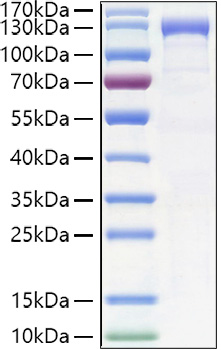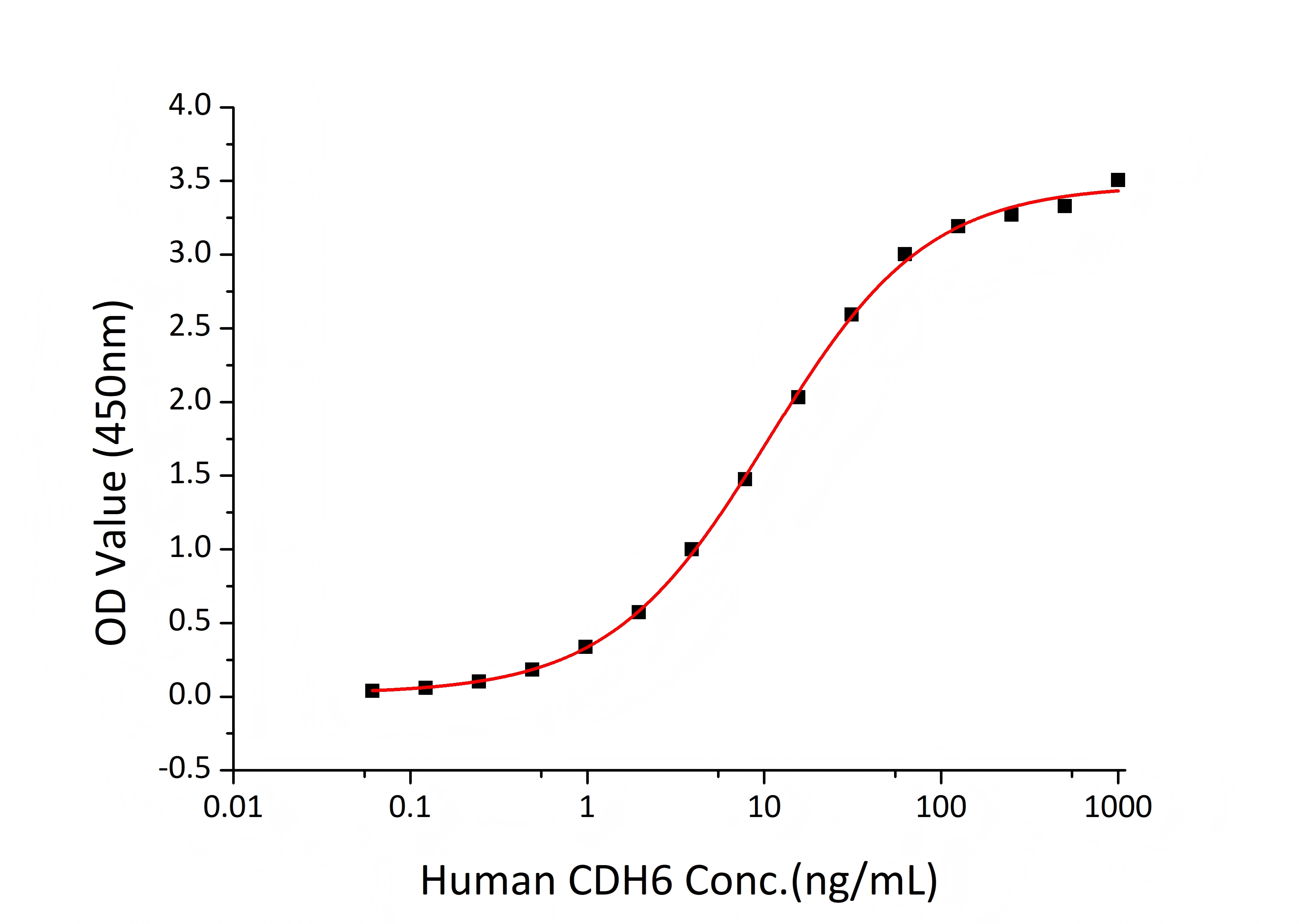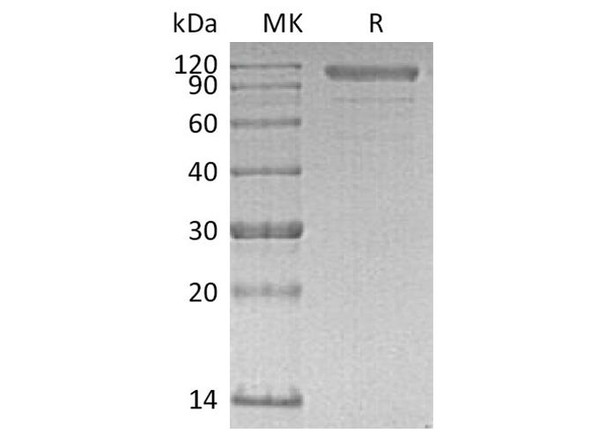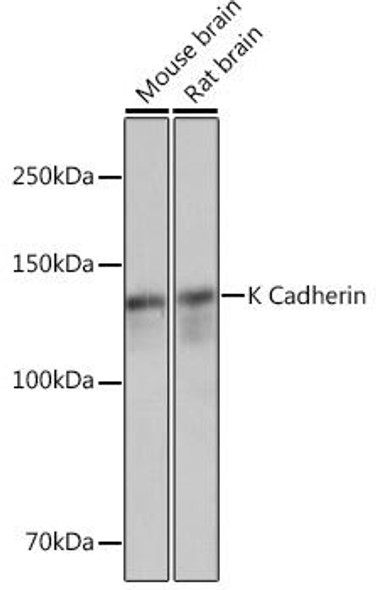Description
Recombinant Human CDH6/K-Cadherin Protein
The Recombinant Human CDH6/K-Cadherin Protein is a biologically active recombinant protein that plays a significant role in various cellular processes and signaling pathways in human biology. This protein is widely employed in immunological research, cell biology studies, protein-protein interaction analyses, and therapeutic development, providing researchers with a reliable tool for investigating CDH6/K-Cadherin function and its implications in health and disease.
This product (SKU: RPCB0989) is produced using HEK293 cells and features a C-hFc&His tag for convenient detection and purification. The protein exhibits a calculated molecular weight of 93.18 kDa with an observed molecular weight of 120-140 kDa under denaturing conditions, achieving ≥ 90 % as determined by SDS-PAGE.. Functional bioactivity has been validated through rigorous quality control assays, confirming its suitability for demanding research applications.
Key Features
| High Purity by Affinity Chromatography | |
| Mammalian & Bacterial Expression Systems | |
| High lot-to-lot consistency via strict QC |
| Product Name: | Recombinant Human CDH6/K-Cadherin Protein |
| SKU: | RPCB0989 |
| Size: | 10 μg , 20 μg , 50 μg , 100 μg |
| Reactivity: | Human |
| Synonyms: | CAD6, KCAD, CDH6, KCAD |
| Tag: | C-hFc&His |
| Expression Host: | HEK293 cells |
| Calculated MW: | 93.18 kDa |
| Observed MW: | 120-140 kDa |
| Gene ID: | 1004 |
| Protein Description: | High quality, high purity and low endotoxin recombinant Recombinant Human CDH6/K-Cadherin Protein (RPCB0989), tested reactivity in HEK293 cells and has been validated in SDS-PAGE.100% guaranteed. |
| Endotoxin: | < 1 EU/μg of the protein by LAL method. |
| Purity: | ≥ 90 % as determined by SDS-PAGE. |
| Formulation: | Lyophilized from a 0.22 μm filtered solution of PBS, pH 7.4. |
| Bio-Activity: | Measured by its binding ability in a functional ELISA. Immobilized Human ULBP1 (RPCB0958) at 2μg/mL (100 μL/well) can bind NKG2D with a linear range of 1.95-9.36ng/mL. |
| Reconstitution: | Centrifuge the vial before opening. Reconstitute to a concentration of 0.1-0.5 mg/mL in sterile distilled water. Avoid vortex or vigorously pipetting the protein. For long term storage, it is recommended to add a carrier protein or stablizer (e.g. 0.1% BSA, 5% HSA, 10% FBS or 5% Trehalose), and aliquot the reconstituted protein solution to minimize free-thaw cycles. |
| Storage: | Store at -20℃.Store the lyophilized protein at -20℃ to -80 ℃ up to 1 year from the date of receipt. After reconstitution, the protein solution is stable at -20℃ for 3 months, at 2-8℃ for up to 1 week. |
CDH6 is a family of calcium-dependent, cell-cell adhesion molecules that play an important morphoregulatory role in a wide variety of tissues. Alterations in cadherin function have been implicated in tumor progression in a number of adenocarcinomas. Cadherin-6 (CDH6), also known as K-cadherin (KCAD), is a type-II classic cadherin cell-cell adhesion molecules, which are expressed in graded or areal patterns, as well as layer-specific patterns, in the cortical plate. Human Cadherin-6 is synthesized as a 790 aa type I transmembrane glycoprotein that contains a 18 aa signal peptide, a 35 aa propeptide, a 562 aa extracellular region, a 21 aa transmembrane segment, and a 154 aa cytoplasmic domain. There are five cadherin domains of approximately 110 aa each in the extracellular region. Cadherin-6 is highly expressed in brain, cerebellum, and kidney, and may contribute to the formation of the segmental structure of the early brain, as well as the development of renal proximal tubules. Weak expression is also detected lung, pancreas, and gastric mucosa. Additionally, it is specifically expressed in the proximal tubule of normal kidneys and in renal cell cancer. Thus, Cadherin-6 is a new prognostic factor for renal cancer.








